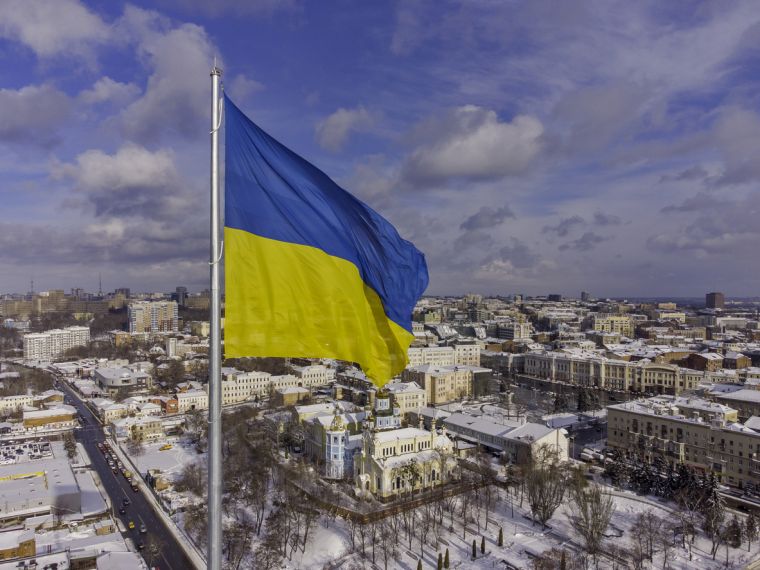Russia-Ukraine crisis threatens 'dark days' for Europe

The Bishop of Coventry has urged Britain to continue seeking diplomatic solutions to the Russia-Ukraine crisis.
Britain's response was debated in the House of Lords on Tuesday evening after Russian President Vladimir Putin ordered troops into two eastern regions of Ukraine held by Russian-backed separatists.
The UK government has responded by freezing the assets of five banks and three Russian billionaires who have also received UK travel bans.
The Lords heard the statement of Prime Minister Boris Johnson to the House of Commons in which he warned that diplomacy alone might not succeed.
"Together we have explored every avenue and given Putin every opportunity to pursue his aims by negotiation and diplomacy," Mr Johnson said.
"I tell the House that we will not give up: we will continue to seek a diplomatic solution until the last possible second, but we have to face the possibility that none of our messages has been heeded and Putin is implacably determined to go further in subjugating and tormenting Ukraine."
Speaking during the debate, Bishop Christopher Cocksworth said he supported the UK's commitment to "unrelenting diplomacy".
He also posed the question of whether "the stronger the sanctions, the better placed that diplomatic work will be".
"These are dark days indeed for Europe," the bishop said.
Tory peer Baroness Evans said the government's first tranche of sanctions were "strong" and "tough", and would be stepped up "if we continue to see Russian aggression".
"We are continuing to work with our allies in diplomatic terms," she said.
A day earlier, Bishop Cocksworth warned of a "looming humanitarian crisis" and urged the government to be ready to support Ukrainian refugees after suggestions that five million people may flee to neighbouring countries.
In response, Conservative peer Lord Goldsmith said the Foreign Office was supporting the Home Office in its diplomatic engagement with European partners and that it was "looking to strengthen co-operation, including a possible new EU-UK migration agreement, and on the immediate concerns relating to Ukraine".











